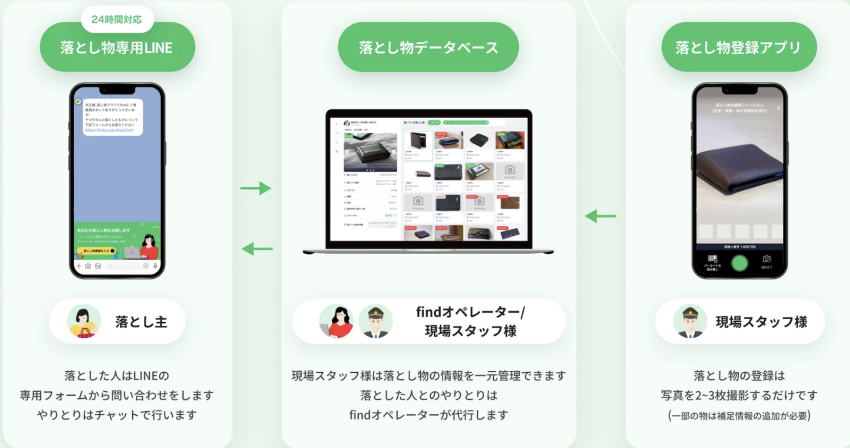Lost-and-found services get helping hand from AI in Japan
If you have lost something on the train, consider reaching out to the train company for assistance. They may have a lost and found department where items are kept. It's possible that your lost item could be located and returned to you. Provide a detailed description of the item and the train journey where you think you lost it to help in the search process. Remember to act promptly as items in the lost and found may be disposed of after a certain period.

Lost something on the train? AI might help track it down, even if you thought it was gone for good. Public transportation service providers and other concerns in Japan are introducing artificial intelligence to categorize and catalog lost items and provide information on where to return them.
Lost-and-Found Platform
Some 30 organizations have introduced a "lost-and-found platform," developed by Tokyo-based information technology firm Find Inc., at about 2,300 stations and other locations. They include the Sapporo City Transportation Bureau and Haneda airport in Tokyo, as well as the Tokyo police force and the Oita prefectural police.
Tokyo-based railway operator Keio Corp has seen its rate of return of lost possessions increase to 30 percent, up from less than 10 percent before the adoption of the system. When a lost item is turned in, transportation or other workers take a picture of it with their tablets. Find's AI-based system then registers the color, shape, and other features of the item before storing the information along with the photos in a database.
Through messaging apps such as Line, owners of a lost item can make inquiries by entering related information, such as where the item was lost, its features, and photos. If there is no photo, the owner can pick a similar-looking image, and the system will let them know if it finds something that matches. The service is available in Japanese, English, Chinese, and Korean.
Efficiency and Effectiveness
Find's staff scour the database using AI based on information entered by the owner of the lost item. Even if the person does not provide a photo or enters only a vague description of the missing item, the AI indicates multiple possible candidates in descending order of probability. If it determines that the item indeed belongs to the person in question, it will guide them to a station or facility counter to retrieve it.
Yurikamome Inc, operator of an automated monorail transit service between Shimbashi and Toyosu in Tokyo's waterfront area, introduced the AI system in July 2024. While the company handles some 15,000 lost-and-found items per year, the number of inquiries has dropped off significantly, said Kiyomichi Mano, an official at the transit line's Shimbashi Station.
Previously, Yurikamome used Excel spreadsheets to categorize lost-and-found items, which was less efficient to search, but Find's system has cut down the time needed to look for items. Mano said the train operator has received messages from people expressing gratitude for the system's help in recovering their belongings and praising the overall convenience of the service.
Positive Impact
Certain departments of the Tokyo and Oita police departments use the system to handle their lost-and-found services. "Items can be returned to owners faster than before as we no longer need to go to the storage warehouse to verify them," said an official in the accounting section at the Oita police department.
Facilities at Hakata Station in the city of Fukuoka, such as the station's commercial building and underground shopping center, have adopted the service collectively, eliminating the need to inquire about lost items at various points around the building.
Find launched its platform in June 2023. As of the end of March, the company had handled a cumulative total of about 1.5 million lost items, of which around 480,000 were returned. "Until now people who had lost their belongings had to check various places by phone," Ryu Wada, chief executive officer of the company, said. "As more facilities use this service, the recovery of lost-and-found items will become easier because inquiries can be matched through a huge database."

